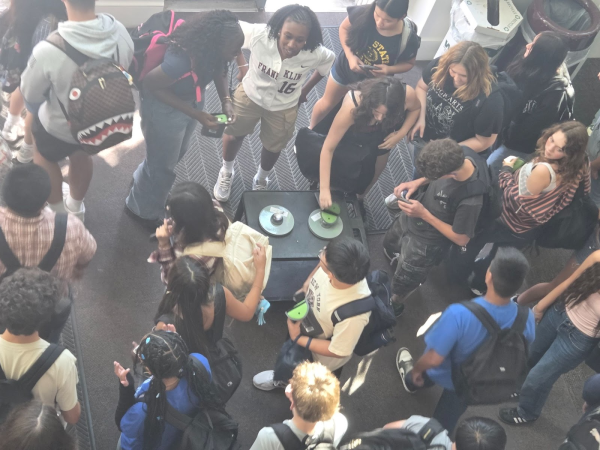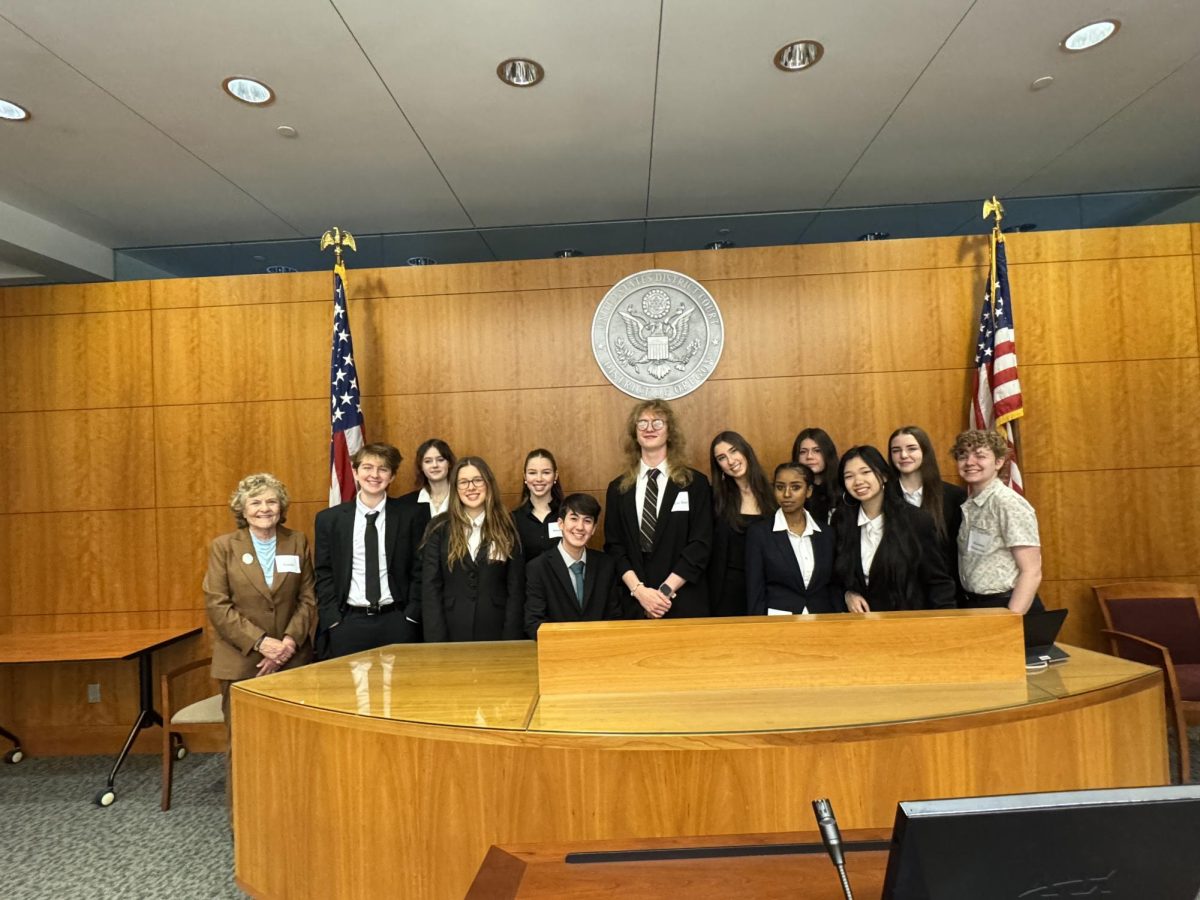
Starting this school year, Franklin has instituted a new phone policy utilizing Yondr pouches, a brand of magnetized pockets designed to keep Personal Electronic Devices (PEDs) inaccessible during the school day. This follows Executive Order 25-09 — issued in July by Governor Tina Kotek — stating that all Oregon public K-12 schools must implement “a policy [prohibiting] the use of [PEDs] by students from the start of regular instructional hours until the end of regular instructional hours.” Kotek’s order follows a nationwide increase in restrictive electronics policies in schools, according to a press release from the National Center for Education Statistics.
But what is the reasoning behind these rapidly expanding phone policies? Vice Principal Amy Gervais, who is in charge of implementing the new policy, says that she finds school phone policies important in part due to her background in mental health as a school counselor. “I have seen the impact of cellphone use not only on student learning, but on student mental health,” she says. “I have a lot of concerns about … the way social media impacts how students feel about themselves [and] shapes how they see the world.” She adds that she feels that in many cases “the way cellphones and social media function [tends] to control content in a way that [can be] a disservice to student learning.”
The Governor’s Office press release regarding EO 25-09 states that PED policies in schools are important for “delivering a high-quality public education and protecting Oregon’s young learners’ safety, health, and wellbeing.” This sentiment is echoed by Liz Baker, the communications manager at Yondr, who describes their mission as being “founded to restore spaces for real human connection, free from the constant pull of technology.” She adds that, “[i]n schools, that means giving students a break from their phones so they can focus on learning, building friendships, and being present with one another.”
In recent years, there has been an increase in research focused on the effect of PEDs, particularly smartphones, on teens’ learning and mental health — including work published by the University of Chicago Press and the Norwegian School of Economics — indicating that reduced cellphone use can be beneficial to academic performance.
Greg Garcia, who teaches psychology at Franklin, says that following school shut downs during COVID lockdowns, Franklin instituted much more lax electronic policies, allowing cellphone use to create “some semblance of normalcy in education.” He adds that he feels that PED use during this time resulted in “adverse [effects]” to the regions of the brain controlling emotional regulation and impulse control. He elaborates, saying, “Social skills atrophied. Attention spans evaporated. Emotional regulation was stilted. Apathy often escalated to hostility over the course of a school year.”
This school year, teachers say they have noticed an increase in class engagement. “Students talk to each other more when they don’t have access to their phone … [and] there’s definitely less distraction,” says Fanny Ortega, a Franklin English teacher. Gervais adds that, “As an admin team we’ve been actively visiting a lot of classrooms … this year there is [a] much higher level of student engagement … across the board.”
Many of the interviewed teachers seem happy to have the sole responsibility of managing students’ devices removed from their shoulders. “It’s less work for me in terms of having to constantly nag and hound students about the phone,” explains Ortega.
Rachel Draper, another Franklin teacher in the social studies department, agrees, adding that she has regained five to ten minutes at the beginning of each class, no longer needing to remind students to put their phones away in the classroom holder.
Franklin Campus Safety Associate Rayanna Hankins says that she has noticed a “huge difference in skipping,” adding that, “students aren’t walking around the hallway as much or hanging out in the bathrooms.”
Franklin decided to implement Yondr’s pouch-based system this last summer. Gervais explains how Franklin admin had been considering it prior, and shared the possibility with staff and community last year, but had not finalized the decision until just before this school year when they were able to come up with a payment plan with Yondr that allowed the school to afford it.
The cost of this system is the main cause for concern among interviewed community members. Draper says that while she feels “[Yondr is] too expensive … it’s doing what it’s supposed to in the classroom.” She adds that she thinks the increased consistency from last year is the biggest force behind its success. Draper and Hannah Kramer, the Franklin PTSA president, both lamented that Franklin’s much cheaper phone policy from last year, which used pockets hung in classrooms, was not more successful.
Gervais feels that “the price is obviously the biggest downside to Yondr,” but explains that the reason it’s worth it to her is the “one little extra separation.” She expands that “‘off-and-away’ is great, but you still have the ping, you still have the [thought] ‘I’ve got to check my cellphone between classes,’ you still have that attachment in your brain to your cellphone.”
While so far this year the policy is proving to be quite effective at keeping students off of their phones, Draper, Ortega, Kramer, and Gervais all mentioned that they do not think all, if even most, students are actually using and locking the pouches as intended. However, no one seems particularly bothered. “Whether [students] have locked their phones up or not, I’m not seeing them,” concludes Draper. Gervais says, “the idea is that it forces [students] to follow our policy from last year … whether they follow it exactly 100% correctly [or not], it is a significant improvement over the way kids followed it last year.”
Gervais encourages any community members with questions or ideas on improving the current system to reach out to her, including talking to her while she greets students at the main entrance every morning. She ends by saying that she sympathizes with students struggling with the new policy. “Change is hard,” she says. “But I believe in the benefit to students’ learning, connection to others, and overall mental health and wellbeing.”







































